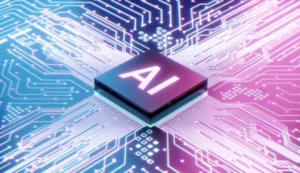Artificial Intelligence (AI) has rapidly advanced in recent years, revolutionizing industries, automating tasks, and changing the way we live and work. While AI brings numerous benefits and innovations, there is an ongoing debate about whether it poses a looming threat to human jobs. In this article, we will explore the impact of AI on the job market and its implications for the future of work.
The Rise of AI in the Workplace
AI, with its capabilities in machine learning, natural language processing, and robotics, has found applications in various sectors, from healthcare and finance to manufacturing and customer service. It can perform tasks with speed and precision, analyze large datasets, and even make decisions, often outperforming humans in certain domains.
Job Displacement vs. Job Transformation
One of the key concerns regarding AI's impact on jobs is the potential for job displacement. Automation, driven by AI, can replace human workers in repetitive and routine tasks. For example, AI-powered chatbots and virtual assistants are taking over customer support roles. Similarly, in the manufacturing industry, robots are increasingly used to handle repetitive assembly line tasks.
However, it's essential to note that AI doesn't necessarily result in job loss across the board. While some jobs may be automated, new roles and opportunities emerge in response to AI advancements. For instance, AI developers, data scientists, and AI ethics specialists are in high demand. The key lies in reskilling and upskilling the workforce to adapt to these changes.
The Evolution of Work
The nature of work is evolving. Instead of fearing AI, we can view it as a tool that augments human capabilities. AI can handle repetitive and data-intensive tasks, allowing humans to focus on creative, strategic, and complex problem-solving activities. This shift can lead to a more engaging and fulfilling work environment, where employees can leverage AI to enhance their productivity and decision-making processes.
Challenges and Ethical Considerations
While AI has the potential to transform industries and work, it also brings challenges. One major concern is the ethical use of AI. Issues related to bias in AI algorithms, privacy, and the impact on vulnerable populations must be addressed. Moreover, there is the question of accountability when AI systems make critical decisions. Balancing innovation with ethical considerations is crucial for a sustainable future of work.
The Role of Education and Training
To mitigate the potential threat to jobs and harness the benefits of AI, investment in education and training is essential. Governments, organizations, and educational institutions must collaborate to provide the workforce with the skills and knowledge needed to work alongside AI. Lifelong learning, retraining programs, and flexible education models can ensure that individuals remain competitive in the job market.
Conclusion
Artificial Intelligence is not just a looming threat to human jobs but also a transformative force. It has the potential to enhance our productivity, improve decision-making, and create new opportunities. However, its impact on employment is complex, with both displacement and transformation of roles. To thrive in the AI era, individuals and societies must adapt, emphasizing education, reskilling, and responsible AI development.






